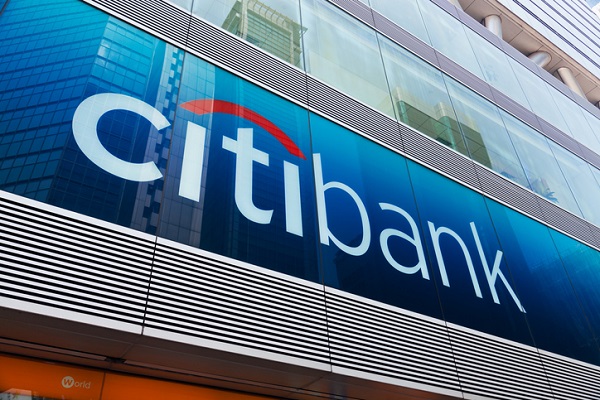ii view: Citigroup's transformation programme has further to run
Shares in this US banking giant have performed strongly since late October but can the rally continue? We assess prospects.
15th January 2024 11:42
by Keith Bowman from interactive investor

Fourth-quarter results to 31 December
- Revenue down 3% to $17.4 billion
- A loss of $1.7 billion compared to a Q4 2022 profit of $2.5 billion
- A loss per share of $1.17
- Capital cushion or CET 1 ratio of 13.3%, down from the prior quarter’s 13.5%
Chief executive Jane Fraser said:
“While the fourth quarter was very disappointing due to the impact of notable items, we made substantial progress simplifying Citi and executing our strategy in 2023.”
- Invest with ii: Buy US Stocks from UK | Most-traded US Stocks | Cashback Offers
ii round-up:
US financial giant Citigroup Inc (NYSE:C) has underlined its ongoing push to transform and simplify the bank as it detailed results for the fourth quarter to the end of December.
Citi aims to cut headcount to around 180,000 over the medium term from 200,000 currently, and take a restructuring charge of $780 million in this latest quarter. Including exceptional items such as this and a $1.7 billion government fee to help with 2023’s regional banking crisis, Citi reported a loss of $1.8 billion, or $1.17 per share. Earnings excluding exceptional items came in at $0.84 per share.
Citigroup shares rose 1% in post results trading compared to falls of around 1% for rivals Bank of America Corp (NYSE:BAC) and Wells Fargo & Co (NYSE:WFC) who also reported Q4 results. Citigroup shares came into this latest news up by a third since late October compared with a gain of around a fifth for JPMorgan Chase & Co (NYSE:JPM), the biggest US bank by stock market size.
Under chief executive Jane Fraser, Citi restructured during 2023 from two giant divisions to five core businesses, aiming to offer investors more performance transparency and allow greater management focus on areas of growth.
Revenues for its service division rose 6% to $4.5 billion, helped by higher net interest income for its Treasury and Trade Solutions (TTS) business. Banking division sales gained 22% to $949 million, pushed by increased investment banking fees, while revenues for its US Personal Banking (USPB) division climbed 12% to $4.9 billion, aided by higher net interest income.
That helped counter a revenue decline of 19% and 3% for its Markets and Wealth Management divisions, hindered by reduced bond trading revenues at the former and lower deposit spreads for the latter.
Citi's total fourth-quarter group revenue fell 3% to $17.4 billion, although was up 2% year-over-year when stripping out items including business disposals.
First-quarter results are likely out on 12 April.
ii view:
Tracing its history back more than 200 years, Citigroup is today focused on being a banking partner for institutions with cross-border needs, a global leader in wealth management and a valued personal bank in its home US marketplace. Strategic focuses now include growing revenues, firmly controlling costs, and improving returns over the medium term.
For investors, heightened borrowing costs are now pressuring both consumer and corporate spending. Any decrease in US interest rate in 2024 will likely lower net interest income, previous overseas business disposals have reduced geographical diversity, while annual costs of $56.4 billion which includes a $1.7 billion fee to the government linked to last year’s failure of regional banks, are up from $48.2 billion in 2021.
- US stock market outlook 2024: sectors to own in the year ahead
- ii view: high rates help JP Morgan stock break record
- Q4 results preview: forecasts for US bank and tech stocks
More favourably, a transformation programme at the bank continues. There is still diversity across its operations despite a more focused strategy under CEO Jane Fraser. Its capital cushion, or CET1 ratio at 13.3% remains robust, while shareholder returns remain a focus, with $1.5 billion in share buybacks and dividends returned over this latest quarter and the shares offering a forecast dividend yield of around 4%.
On balance, and despite ongoing risks, management’s push to increase efficiency, plus a consensus analyst estimate of fair value at over $57 per share, both look to offer grounds for optimism over the long term.
Positives:
- Business transformation
- Attractive dividend payment (not guaranteed)
Negatives:
- Uncertain economic outlook
- Reduced geographical diversity
The average rating of stock market analysts:
Strong hold
These articles are provided for information purposes only. Occasionally, an opinion about whether to buy or sell a specific investment may be provided by third parties. The content is not intended to be a personal recommendation to buy or sell any financial instrument or product, or to adopt any investment strategy as it is not provided based on an assessment of your investing knowledge and experience, your financial situation or your investment objectives. The value of your investments, and the income derived from them, may go down as well as up. You may not get back all the money that you invest. The investments referred to in this article may not be suitable for all investors, and if in doubt, an investor should seek advice from a qualified investment adviser.
Full performance can be found on the company or index summary page on the interactive investor website. Simply click on the company's or index name highlighted in the article.